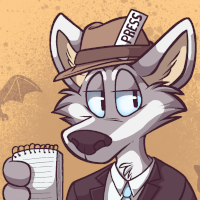The history of My Little Pony and thoughts about growing up with cartoons.
by Patch O'Furr
Coming soon at Dogpatch Press – a Q&A with the author of Ponyville Confidential: a History of My Little Pony.
Sherilyn Connelly is a journalist local to the Bay Area Furries. She gives them supportive notice in publications like SF Weekly. Now her first book is coming from McFarland publishing. Ponyville Confidential will dig deep into culture while being a fun read for everypony. (I’m told there are some parts specifically about furries.) If you like the show and can give support back to Sherilyn, please visit the book’s Facebook page and give a ‘like’ right now!
I have only seen 6 or 7 episodes of My Little Pony: Friendship Is Magic, and they were great. Even with low experience, it makes me want to share some thoughts before the Q&A. This is more personal than about the show or the book.
Growing up with cartoons.
When I talked with Sherilyn, she described a double standard about audience gender. It’s a thesis in the book that when My Little Pony first aired in 1986, it was disrespected as a prime example of crass commercialism. They said it was all about selling toys. By comparison, similar toy-related “boy” shows, like Transformers, got a pass. “Girly” shows had extra stigma.
It gives me curiosity about my own puppyhood in the 1980’s, but parts that were a bit outside of my consciousness. I didn’t watch My Little Pony, and similar sparkly friendly shows like Rainbow Brite and Strawberry Shortcake. I experienced them being judged as sissy girly stuff, and they would make me do barfing noises. Instead I loved He-Man, G.I. Joe, and most of all the Transformers.
There was another kind of stigma with “boy” shows. Even if “girl” shows could be disrespected as trivial, they could still be considered inherently nice. But my favorites were judged as morally questionable. Parents were suspicious of indulging a masculine sense of adventure and danger, even with stories about justice. Action and “violence” would corrupt impressionable minds. It had to be policed to keep kids pure and innocent.

